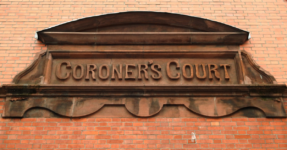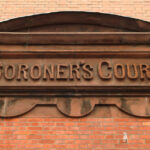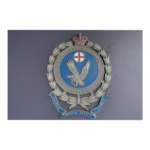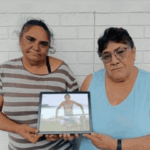The Coronial Process in New South Wales

The NSW Special Commission of Inquiry into LGBTIQ Hate Crimes delivered its final report right before Christmas.
Established in April 2022, the inquiry delved into 34 unsolved murders that took place in Sydney between the years 1970 and 2010, 25 of which were thought to be gay hate crimes.
Nineteen-Seventies Greater Sydney, especially the inner city and the Northern Beaches, was a notorious region for violent gay hate crimes, which, at times, saw a bashings either intentionally or recklessly eventuate into the criminal offence of murder, with the NSW Police Force little concerned about LGBTIQ deaths.
Inquiry head NSW Supreme Court Justice John Sackar recommended that fresh inquests be held into four of the historical incidents, in light of evidence heard and the determination his Honour made, as many of these suspect deaths were treated as accidents or suicides back in their day.
An inquest or a coronial inquiry is a court hearing where a coroner considers the evidence relating to a death, usually to uncover its cause, although this process can be used to determine the identity of the deceased or attempt to identify the date and time of death.
And if the presiding judicial officer finds something suspect relating to the incident inquired into, they can then refer the matter to the Director of Public Prosecutions (DPP) to consider whether pressing criminal charges is warranted.
Indeed, in sending the identified historical deaths back to the Coroners Court of New South Wales, Justice Sackar hopes that a fresh inquest is more likely to make an honest determination about the cause of death when those involved in the procedure aren’t plagued by the prejudice of last century.
Cause of death
The coronial system primarily involves independent investigations of deaths that are sudden, unexpected or unexplained.
These investigations are mandatory in certain circumstances, including deaths in custody, suspected homicides and when the available information does not sufficiently disclose the identity of the deceased, or the date, place cause or manner of their death.
When these types of deaths come to the attention of the NSW police, it then reports them to the Coroners Court of NSW. The process can be applied to a range of other situations, including suspicious fires and explosions.
The purpose of an inquiry is to fact-find, prevent future deaths, to have a therapeutic or restorative impact, and in cases where state agents are involved, to hold them accountable were warranted and to uphold human rights.
In NSW, coronial inquiries are presided over by the state coroner or a deputy state coroner. These officers must also be a NSW Local Court magistrate. And the structure of the NSW coronial system was established in 1901, when the lower court was charged with its oversight.
Forensic and judicial inquiries
The bodies of reported deaths are taken to the forensic medicine service at Lidcombe in Sydney, or to a local hospital in regional areas. It will then be determined whether a postmortem need take place, and in regional areas, this requires the body to be moved to Newcastle or Wollongong.
At that time a senior next-of-kin must be established as the sole point of contact for the family of the deceased with regard to the Coroners Court. The senior next-of-kin does not necessarily need to be a relative, as a nonrelative can be nominated.
And the senior next-of-kin can raise any objections to a postmortem.
Following that procedure, a coronial inquiry can then take place, which involves a coroner hearing the evidence relating to the death being probed, and witnesses can be called to testify in regard to the circumstances of death.
At the end of that hearing, the court is adjourned for a period while the coroner considers the evidence and reports back with their findings, which can vary in length and involve recommendations that can include referring the matter to the DPP for criminal investigation.
Coronial jurisdiction
The Coroners Court of NSW is located in the Sydney suburb of Lidcombe. The Governor of NSW appoints the NSW state coroner and the deputy coroners, as in accordance with the legislation that governs the court: the Coroners Act 2009 (NSW) (the Act).
The Act empowers coroners to examine unnatural and suspicious deaths. Section 27 stipulates that inquests must be held into deaths or suspected deaths thought to be homicides, particular types of deaths where an inquest is necessary or if the coroner considers circumstances warrant it.
Division 2 of the Act details the circumstances when an inquest is mandatory. These are deaths in custody or as a result of police operations, along with child deaths in care or criminal circumstances, as well as the suspicious deaths of people with disabilities.
In the case of unreported deaths where an inquest is not mandatory, a coroner has the discretion to dispense with an inquest in circumstances where there are no pending questions, and the cause of death is known to be natural.
The 2022 final report of the NSW Legislative Council Select Committee on the Coronial Jurisdiction found that the NSW Coroners Court is in need of additional resources, including extra staff and funding, so it can address its caseload pressures, delays and backlogs.
First Nations deaths in custody
The Royal Commission into Aboriginal Deaths in Custody was established in 1987, and it went on to investigate 99 First Nations deaths that occurred in the custody of either corrective services or police, due to the high rates of such incidents and the lack of accountability relating to them.
In tabling its final report in 1991, the Royal Commission handed down 339 recommendations, one of which was that an inquest be held following every death in custody, which can occur due to injury or neglect, and in the midst of being detained or trying to escape.
However, since the time of the Royal Commission another 558 Aboriginal death in custody have taken place.
A lack of accountability still exists in relation to First Nations custody deaths. However, just two weeks ago, NSW state coroner Teresa O’Sullivan adjourned the inquest into the custody death of Dunghutti teenager Jai Wright and referred the case to the DPP for potential criminal charges.
This is only the second time in living memory that an Aboriginal death in custody referral to the DPP has been made in this state. The first time one was made was in October 2020 and that too had O’Sullivan making the referral.






